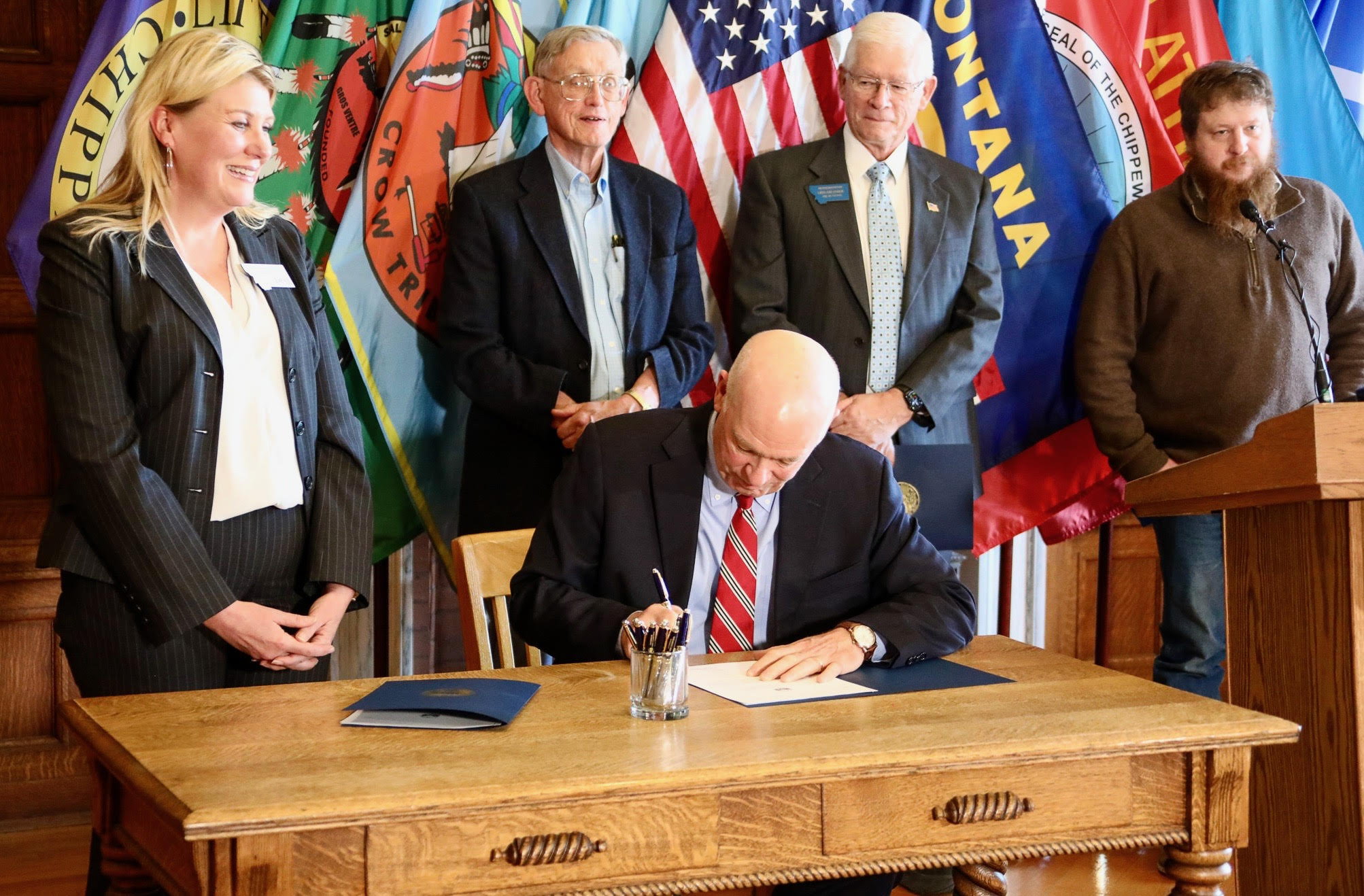Governor Gianforte Provides Certainty to Montana’s Energy Sector
Signs into law five environmental policy reform bills

HELENA, Mont. – Joining House Speaker Brandon Ler, R-Savage, legislators, and Department of Environmental Quality (DEQ) Director Sonja Nowakowski, Governor Greg Gianforte today signed into law five bills to reform the Montana Environmental Policy Act (MEPA) to protect the environment, cut red tape, and provide certainty to businesses and Montana’s energy sector.
“Last year, the Montana Supreme Court issued a series of rulings that if left unchecked would have impacted Montana’s energy sector at time when Americans have seen electricity costs soar nearly 30 percent in the last four years,” Gov. Gianforte said. “This package of legislation reduces red tape and provides certainty to small and large businesses across our state.”

Passed by the Montana Legislature in 1971, MEPA is the framework DEQ and other state agencies use to review the potential impacts of their actions and decisions.
Agencies follow the process outlined in MEPA to research impacts and disclose them to the public in environmental review documents. These documents, which typically take the form of environmental assessments or environmental impact statements, provide a comprehensive review of the potential impact proposed projects may have on the environment.
“These are common sense next steps, in fact very big next steps for DEQ,” Director Nowakowski said. “With the legislature’s work on these bills, which the governor has now signed into law, DEQ can now engage in a broader conversation with private sector and stakeholders to uphold our mission while also providing certainty to businesses across our state.”
Standing with legislators, Gov. Gianforte signed into law five bills reforming the MEPA process to clarify the state’s responsibilities under the law in light of recent court decisions.
“It was truly a great session when it came to MEPA reform,” Speaker Ler said. “With the signing of this MEPA reform package, we’re making it clear that Montana’s environmental policy is about informed decision making, and not weaponizing and litigation.”
House Bill 285, sponsored by Speaker Ler, reaffirms the purpose of environmental reviews is procedural in nature and is to share information with policymakers and the public.
Ler added, “In the Held v. Montana case, they tried to twist MEPA into something it was never meant to be – a tool to deny permits and block development. House Bill 285 sets the record straight: MEPA procedural, it’s a way to gather facts, weigh impacts, and make informed decisions – not dictate them.”
House Bill 270, sponsored by Rep. Katie Zolnikov, R-Billings, clarifies that courts may not vacate permits without properly considering a number of factors in law, including impacts to Montana’s economy and the public interest.
House Bill 291, sponsored by Rep. Greg Oblander, R-Billings, makes it clear that the State of Montana cannot adopt air quality standards that are stricter than the federal government’s, except in specific circumstances.
House Bill 466, sponsored by Rep. John Fitzpatrick, R- Anaconda, outlines that projects that are exempt from National Environmental Policy Act are also exempt from MEPA, reducing burdensome red tape and potentially duplicative processes.
Lastly, Senate Bill 221, sponsored by Senator Wylie Galt, R-Martinsdale, clearly states what impacts are required to be included in MEPA assessments and directs DEQ to develop guidance for use by state agencies.
The governor concluded, “These bills come as part of our shared commitment to reducing red tape, expediting permitting, and making Montana the best place for business. Today stands as an example of what we can do when we work together, and I’m grateful to the Legislature for its leadership.”
The press conference may be viewed here.
###